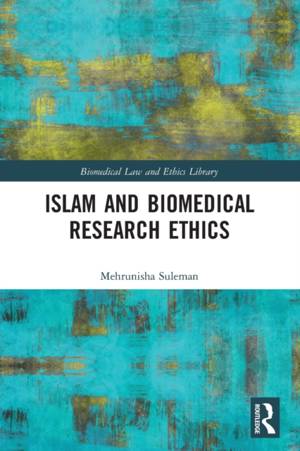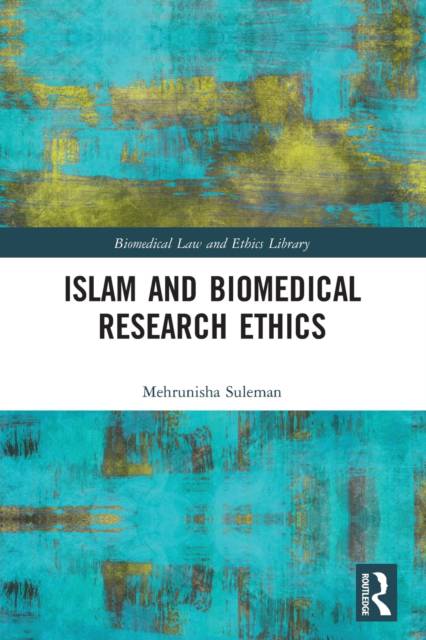
- Afhalen na 1 uur in een winkel met voorraad
- Gratis thuislevering in België vanaf € 30
- Ruim aanbod met 7 miljoen producten
- Afhalen na 1 uur in een winkel met voorraad
- Gratis thuislevering in België vanaf € 30
- Ruim aanbod met 7 miljoen producten
Omschrijving
This book is a contribution to the nascent discourse on global health and biomedical research ethics involving Muslim populations and Islamic contexts. It presents a rich sociological account about the ways in which debates and questions involving Islam within the biomedical research context are negotiated - a perspective which is currently lacking within the broader bioethics literature. The book tackles some key understudied areas including: role of faith in moral deliberations within biomedical research ethics, the moral anxiety and frustration experienced by researchers when having to negotiate multiple moral sources and how the marginalisation of women, the prejudice and abuse faced by groups such as sex workers and those from the LGBT community are encountered and negotiated in such contexts. The volume provides a valuable resource for researchers and scholars in this area by providing a systematic review of ethical guidelines and a rich case-based account of the ethical issues emerging in biomedical research in contexts where Islam and the religious moral commitments of Muslims are pertinent.
The book will be essential for those conducting research in low and middle income countries that have significant Muslim populations and for those in Muslim-minority settings. It will also appeal to researchers and scholars in religious studies, social sciences, philosophy, anthropology and theology, as well as the fields of biomedical ethics, Islamic ethics and global health..
Specificaties
Betrokkenen
- Auteur(s):
- Uitgeverij:
Inhoud
- Aantal bladzijden:
- 242
- Taal:
- Engels
- Reeks:
Eigenschappen
- Productcode (EAN):
- 9780367513870
- Verschijningsdatum:
- 29/04/2022
- Uitvoering:
- Paperback
- Formaat:
- Trade paperback (VS)
- Afmetingen:
- 155 mm x 229 mm
- Gewicht:
- 317 g

Alleen bij Standaard Boekhandel
Beoordelingen
We publiceren alleen reviews die voldoen aan de voorwaarden voor reviews. Bekijk onze voorwaarden voor reviews.











